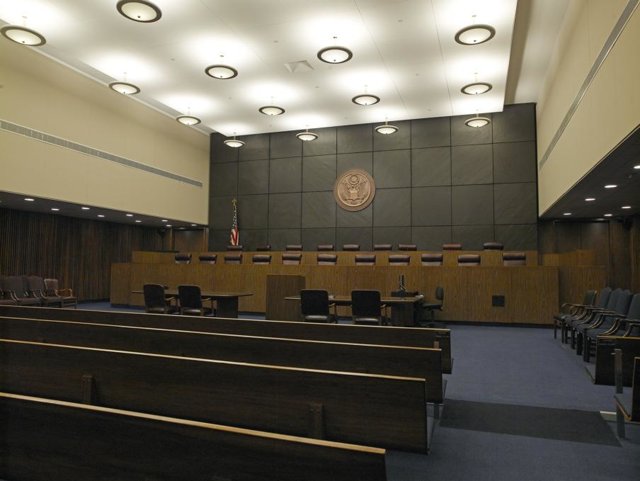
-
HOME
-
WHAT IS STANDOur Mission Our Values Our Help Contact
-
WHAT WE FIGHT FORReligious Freedom Religious Literacy Equality & Human Rights Inclusion & Respect Free Speech Responsible Journalism Corporate Accountability
-
RESOURCESExpert Studies Landmark Decisions White Papers FAQs David Miscavige Religious Freedom Resource Center Freedom of Religion & Human Rights Topic Index Priest-Penitent Privilege Islamophobia
-
HATE MONITORBiased Media Propagandists Hatemongers False Experts Hate Monitor Blog
-
NEWSROOMNews Media Watch Videos Blog
-
TAKE ACTIONCombat Hate & Discrimination Champion Freedom of Religion Demand Accountability
Islamophobia Threatens to Derail Muslim American’s Nomination to U.S. Court of Appeals
A Muslim-American nominee for a judgeship on the U.S. Court of Appeals may be denied the chance to serve—not for lack of qualification but from prejudice.

Born in Pakistan, Adeel Abdullah Mangi would be the first Muslim American to sit on the federal appellate court if confirmed. His resumé includes two decades as a corporate litigator and degrees from Oxford and Harvard. He has also volunteered his legal services to fight for religious freedom.
But the questions put to him by members of the Senate Judiciary Committee had less to do with jurisprudence and more to do with Islamophobic suspicions.
There are an estimated 3.5 million Muslim Americans and 870 federal judgeships. Just two of those judgeships are held by Muslim Americans.
Senator Ted Cruz asked, “Do you condemn the atrocities of Hamas terrorists?” Another asked, “Do you celebrate the anniversary of 9/11 in your home?” Yet another suggested Mangi was antisemitic.
Mangi, who fought and won two high-profile civil rights cases in which Muslim communities were prevented from building mosques, has been described by the White House as an “extraordinarily qualified nominee who is devoted to the rule of law, lived the American dream through hard work, proven his integrity, and would make history on the bench.”
There are an estimated 3.5 million Muslim Americans and 870 federal judgeships. Just two of those judgeships are held by Muslim Americans. Mangi would be the first Muslim appellate court judge.
But his confirmation is by no means certain. An undisclosed group has spent at least $50,000 on a digital ad campaign against “antisemite Adeel Mangi.”
Putting the lie to the accusations of antisemitism, two Jewish groups—the Anti-Defamation League (ADL) and the National Council of Jewish Women—have come out in support of Mangi. The ADL said, “berating the first American Muslim federal appellate judicial nominee with endless questions that appear to have been motivated by bias towards his religion is profoundly wrong.”
Wael Alzayat, CEO of Emgage Action, an organization that seeks to empower Muslim Americans, said, “I think in the climate we are in post-October 7th, some members want to equate Muslims with Hamas or with terror. This is an option for them to kind of use that as a cover to deny a perfectly qualified candidate.”
“We are worried that there may be senators who are questioning their vote over spurious allegations and hateful smear campaigns,” said Arsalan Suleman, a lawyer and co-founder of America Indivisible, a nonprofit organization addressing anti-Muslim and other forms of bigotry. “I think there is no doubt that he is a supremely qualified candidate for the bench and should be confirmed, and absent this discriminatory treatment he’s been receiving, I’m sure he would have been confirmed already.”
The spurious accusations and character smear accompanying Mangi’s nomination echo what happened in last year’s Senate confirmation of another eminently qualified Muslim American. Dilawar Syed’s nomination to the post of Deputy Administrator of the Small Business Administration (SBA) was dogged by two years of delays and what the Congressional Asian Pacific American Caucus characterized as “bigotry, plain and simple.” Syed overcame the mischaracterizations and slurs and ultimately won confirmation for the SBA post, making him the highest-ranking Muslim in the U.S. government.
With the Senate Judiciary Committee hearing over, Mangi awaits the Senate vote for a lifetime appointment to the U.S. Third Circuit Court of Appeals.
STAND condemns Islamophobia and anti-religious hate in all its forms.





